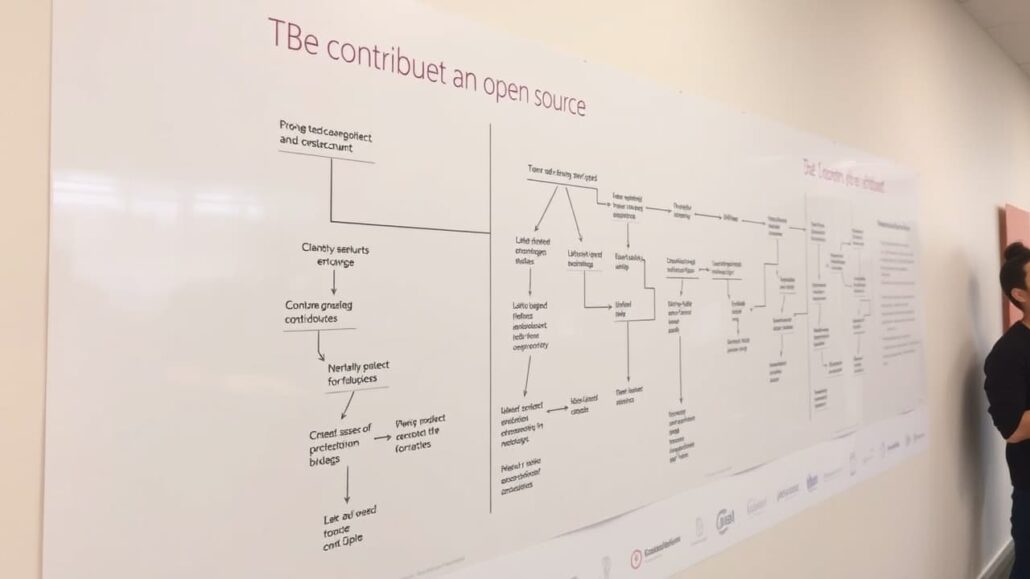Open source libraries have revolutionized the software development landscape, providing developers with powerful tools to enhance their projects. As the popularity of open-source software continues to grow, understanding both the benefits and vulnerabilities associated with these libraries is crucial for effective development practices. This article delves into the nature of open source libraries, their importance, and common use cases.
Introduction to Open Source Libraries
Open source libraries are collections of pre-written code that developers can use to facilitate software development. These libraries are made available under licenses that allow users to modify and distribute the source code freely. By leveraging open source libraries, developers can save time, foster innovation, and enhance their projects with robust functionality while benefiting from the contributions of a large community of users.
What are Open Source Libraries?
Open source libraries are essentially repositories of code that are freely accessible to anyone interested in software development. Unlike proprietary software, which restricts access and modification, open source libraries encourage collaboration and sharing. Developers incorporate these source libraries in their codebase to leverage pre-built functions, reducing redundancy and streamlining the development process while ensuring that their projects remain up-to-date with the latest advancements.
Importance of Open Source Software
The significance of open source software lies in its ability to democratize access to technology. By utilizing open source libraries, developers can tap into a wealth of knowledge and resources, significantly lowering the barrier to entry for software development. This collaborative environment fosters innovation, as developers can contribute to and improve existing libraries, leading to more secure and efficient open source projects that benefit the entire community.
Common Use Cases for Open Source Libraries
Open source libraries have diverse applications across various domains. Developers frequently use them to address common challenges in software development, such as creating user interfaces, managing databases, or processing data. By incorporating these libraries, teams can focus on core functionalities while relying on established open source dependencies for additional features, ensuring both efficiency and security in their projects.
Understanding Security Vulnerabilities in Open Source Libraries
Security vulnerabilities in open source libraries pose significant challenges for developers and organizations leveraging these resources. Identifying and mitigating these vulnerabilities is critical to maintaining the integrity of software development projects. While open source libraries provide numerous benefits, they also introduce risks that must be addressed to ensure the security of open source software. For instance, VPN Unlimited is one of the tools that can enhance security by providing an additional layer of privacy, particularly when integrated with open source projects that involve data exchange over networks.
Types of Security Vulnerabilities
Various types of security vulnerabilities can arise from using open source libraries, including code injection, buffer overflows, and insecure dependencies. These vulnerabilities often stem from flaws within the source code or inadequate patch management practices. Developers must be vigilant in assessing these risks, as malicious actors may exploit these weaknesses to compromise the security of open source projects and the data they handle.
Notable Vulnerabilities in Open Source Software
Historically, several notable vulnerabilities have emerged within open source software, prompting widespread attention and concern. For instance, the Heartbleed bug in the OpenSSL library highlighted the potential consequences of overlooked security flaws. Such vulnerabilities can lead to severe data breaches, emphasizing the importance of maintaining an up-to-date understanding of vulnerabilities in open source libraries and addressing them proactively to safeguard the development process.
Risks Associated with Open Source Libraries
The risks associated with open source libraries extend beyond individual vulnerabilities; they also encompass issues related to third-party dependencies and outdated code. Using open source dependencies without proper scrutiny can introduce unforeseen security risks, especially if these libraries are not actively maintained. Developers must evaluate the security of open source libraries critically, considering the potential impact on their projects and the broader community of users.
Best Practices for Leveraging Open Source Libraries
To maximize the benefits of using open source libraries while minimizing security vulnerabilities, developers should adopt best practices. These practices not only enhance the security of open source software but also contribute to a more efficient and effective development process. Implementing rigorous evaluation and maintenance strategies is essential for fostering innovation and ensuring the long-term viability of open source projects.
Evaluating Open Source Software
When evaluating open source software, developers should conduct thorough assessments of the libraries they intend to use. This includes reviewing the library’s documentation, community engagement on platforms like GitHub, and the frequency of updates and patches. A proactive approach to evaluation can help identify potential vulnerabilities before they become significant risks, ensuring that developers make informed choices about the open source dependencies they integrate into their codebase.
Integrating Security into the Development Process
Integrating security into the development process is vital for protecting open source libraries from vulnerabilities. By adopting security-first practices, such as regular code reviews and automated testing, developers can identify and address vulnerabilities early in the development cycle. This proactive stance not only enhances the security of open source projects but also fosters a culture of accountability and diligence within the community of users.
Maintaining and Updating Open Source Libraries

Regular maintenance and updates are crucial for the security of open source libraries. Developers should stay informed about the latest patches and security advisories related to their dependencies, promptly applying updates to mitigate vulnerabilities. By ensuring that their projects leverage the most up-to-date versions of open source libraries, developers can significantly reduce the risk of security breaches and enhance the overall security posture of their software development efforts.
Ways to Mitigate Open Source Security Risks
Implementing Security Measures
To effectively mitigate security risks associated with open source libraries, developers must implement a variety of security measures. This includes establishing robust access controls, ensuring that only authorized personnel can modify the source code, and conducting regular audits of the open source dependencies integrated into their projects. Additionally, creating a security policy that outlines best practices for using open source libraries can help foster a culture of security awareness among the development team. Ultimately, a proactive approach to security measures is essential for safeguarding the integrity of open source projects.
Using Automated Tools for Vulnerability Scanning
Utilizing automated tools for vulnerability scanning is another critical strategy for enhancing the security of open source libraries. These tools can help developers identify potential vulnerabilities within their codebase and ensure that their open source dependencies are up to date. By integrating these tools into the development process, teams can automate the detection of security vulnerabilities, making it easier to address issues before they escalate into significant risks. Moreover, continuous monitoring of open source libraries through automated scans supports the proactive management of security vulnerabilities, thus bolstering the overall security of open source software projects.
Community Engagement and Support
Engaging with the community of users surrounding open source libraries is vital for improving library security. Active participation in forums, contributing to discussions on platforms like GitHub, and collaborating with other developers can lead to increased awareness of existing vulnerabilities and best practices for mitigating risks. By leveraging the collective knowledge of the community, developers can stay informed about emerging threats and security patches, ultimately enhancing the security posture of their open source projects. Furthermore, fostering open communication within the community encourages a culture of collaboration, where developers can share insights and strategies for addressing vulnerabilities in open source libraries.
